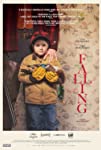Eye For Film >> Movies >> Falling (2020) Film Review
Falling
Reviewed by: Stephanie Brown

Viggo Mortensen’s directorial debut Falling is a compelling and carefully written addition to LGBTQ+ cinema. Mortensen’s triple-threat debut - he writes, directs and stars in this touching drama - showcases his versatility in the arts, as well as his understanding of dementia and the importance of its representation in film.
John Peterson (Mortensen) brings his father Willis (Lance Henriksen), who is struggling with progressive dementia, to live with him and his husband Eric (Terry Chen). As John attempts to reconnect with his conservative, and often bigoted father, the collision between the past and present in Willis’ failing memory make it difficult for them to form any semblance of a relationship built on respect and acceptance.
Mortensen’s script does well to dissect and explore the tangled duality of personal liberation and family conservatism - and it is Mortensen’s quest for authenticity within these stories that elevates the messages at the core of the film. This decade we have had more LGBTQ+ films than ever in the history of cinema, and one of the main problems that continues to exist, particularly in Western cinema, is that there seems to be this need to market the most painful of moments as somewhat idyllic. Mortensen’s screenplay refuses to conceal the struggles and hardships that people in the community face, particularly issues that reside close to home.
Falling depicts the realities of dementia in a very interesting way, Mortensen seems to draw particular focus to the aggression, fear and pejoratives associated with neurological disorders - a side only ever faintly explored in cinema. The flashback sequences make the film much more tactile, allowing the audience to experience the senses and triggers that drive Willis back to unlocking past memories and experiences - Mortensen continually submerges you in the subconscious of Willis and makes it easier for the spectator to be immersed in the lives of the characters.
However, the characterisation of Willis is difficult to digest, the underdevelopment of his past makes it difficult to understand the person we spend the film with. How can we discern if the opinions he expresses are a reflection of his true self or merely a symptom of his illness? There seems to be a great deal of information that is omitted from the screenplay, as if the audience has access to the many anecdotes that craft Mortensen’s memoir-style authorship. Perhaps Mortensen was simply examining the later stages of dementia, when it becomes difficult to remove the person from the illness that contorts them. Although, at many times during the film, it’s difficult to break away from the feeling that you are forced to digest these family conflicts without the context to truly understand them.
Falling is an impressive debut feature that delicately captures the perspectives of those struggling with neurological disorders, and equally of those caring for those affected. Mortensen’s inclusion of LGBTQ+ themes strengthens the complexity of family dynamics, and creates a strangely touching journey that glides through the different textures and faces of family drama and the force love has on you, even when it is no longer convenient. While there are gaps that need filled in, the film as a whole is not one that will stain Viggo Mortensen’s legacy, it will reveal the potential he has in his future directorial career as a deeply interesting filmmaker.
Reviewed on: 04 Dec 2020

















